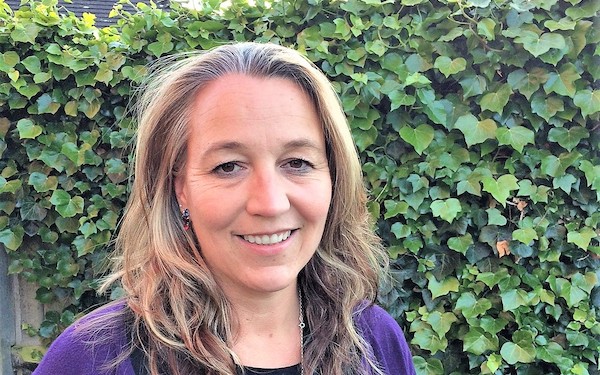In February 2014, Hampshire County Council was found by Ofsted to be ‘good’, with elements of ‘outstanding’, in its provision of social care for children. A respectable outcome – but the children and families’ management team knew that the skills and abilities of the department and its social care staff could deliver an outstanding service across the board.
Five years on, and as a result of a £6.5 million investment in staffing, a tailored transformation programme and Hampshire being established as a Department for Education ‘Partner in Practice’, Hampshire’s management team and workforce have taken the service on a journey from ‘good’ to ‘outstanding’ across the board.
This is the story of how that dramatic transformation happened.
Strengths-based mindset
Ofsted’s 2014 inspection of the council was the impetus for the various projects that united under the Hampshire Approach banner. So, the service began a series of projects designed to make the service even better – all under the umbrella of the Transforming Social Care programme.
As head of strategy and operations for the west of Hampshire, Sue Kocaman started the strengths-based cultural change programme by getting a group of frontline workers to brainstorm ideas.
“We talked about how the service should run on the same strengths-based mindset we use with families,” she recalls. “The staff wanted a workplace that recognised the resilience and personal strengths of our workforce.”
To make that happen, the team consulted workers about where the department was and what would be needed to instil a strengths-based working culture.
“We were already close in areas like values and shared moral basis, but in areas like trusting staff and giving them responsibility to bridge the gap between where we were and where we wanted to be was bigger,” says Sue.
“Staff said ‘we’re capable and well supported, but we’re also a bit constrained’. They felt they could do more for families if they were allowed to be more innovative and had rules that felt more supportive than confining.”
Trusting social workers

Sue Kocaman, head of strategy and operations for the west of Hampshire
But the service’s desire to deliver this vision left the leadership team in a quandary. The 2014 Ofsted inspection said that the way Hampshire managed and supported staff kept children safe. Now, the service was looking at fixing something that, as far as Ofsted was concerned, wasn’t broken.
However, the management team knew work could be done to ensure children were not just safe – but offered the best possible outcomes.
“The worry was by changing things we’d potentially compromise how well we manage cases, how safe staff felt, and how children were protected,” says Steph How, head of strategy and operations for the east of Hampshire and the strategic lead for Transforming Social Care. “It was a real challenge to find a way to loosen the management grip whilst maintaining a safe service.”
Amber James, head of resource and partnerships for adoption, fostering and residential services, says the team solved the challenge by homing in on the scheme of delegation – the service-wide document detailing who makes what decisions and at what level.
The goal was to bring decision making as close as possible to the social workers who knew the children and families best. Deciding who could make expensive placement decisions was especially tough.
“Out-of-county placements with independent providers, for example, are quite costly,” she says. “We had to identify who should make those decisions. We bought it back to another question: who knows the child best?
“So, we changed the scheme of delegation to trust staff to explore all options and make the right decision about the best quality and best value placement.”
Lucy Marett, the principal consultant leading the Transforming Social Care programme, says it was probably the single toughest choice the service’s management team faced: “We had some really challenging conversations among the management team and with frontline staff about this – trying to identify who is best-placed to make decisions in the right timescales for children.”
Supporting parents

Steph How, strategic lead for Transforming Social Care
At the same time, Steph was leading efforts to bolster support for parents by bringing professionals into the children’s social work teams to help more children stay safely with their families.
“We were – and are – investing in recruiting workers who know how to support adults on the trigger trio issues like mental health, domestic abuse, and substance misuse,” she says.
“Children’s social workers are experts on children, but we intervene with families predominantly because of the issues their parents and carers have, and our staff are not necessarily the experts on supporting adults.”
But the shortage of adult mental health workers meant that recruiting the intensive support workers to help with mental ill-health was a challenge.
“There aren’t many adult mental health workers out there, so we rethought our plans on that issue,” says Steph. “We trained our social workers on emotional first aid and supporting parents with their mental health at any early stage. That helps them support parents with lower level mental health issues – those below tier 3 or 4 mental health provision.”
Huge time savings
In tandem, efforts to lighten the burden that electronic case recording puts on social workers were making rapid progress.
“We asked frontline social workers to inform us about how they would like us to redesign the IT systems,” says Lucy. “By consulting staff, we avoided making changes that we thought might be good but were actually of no benefit.”
Amber says the changes have delivered huge time savings. Some processes that used to take 10 minutes now take 30 seconds or a single click.
“Previously, if you had a family of seven children, you’d have to re-input addresses, relationships and other details over and over,” she says. “But now you can enter common details like the address just once and then tick the children you want those details attributed to.”
The time savings are especially beneficial for Hampshire’s Multi-Agency Safeguarding Hub, which – due to the county’s size – gets thousands of contacts and referrals every week.

Amber James, head of resource and partnerships for adoption, fostering and residential services
Change designed by social workers
The input of social workers and others who work for or with the service, including foster carers, has made the transformation at Hampshire something management does in step with frontline practitioners.
“We’re changing child protection plans, assessments, how meetings are chaired, the way we work with families, and more, and in every case our social workers’ fingerprints are all over those changes,” says Lucy.
“That came about because we approached things initially as a series of projects with staff input, that then evolved into an entire, strategic level transformation.
“In social work people often talk of transformation when, sometimes, it isn’t. But the changes we’ve been making here really are transformational.”
Validated by Ofsted
And the transformation isn’t done yet. The service considers it a work-in-progress, but the benefits are becoming clear.
The number of children in care is declining. Management oversight is better. Action to protect adolescents from radicalisation or trafficking is swifter. And the service’s social workers are becoming more and more confident, skilled and creative at coming up with new, innovative ideas.
“It’s been a massive change,” says Steph. “But what’s most positive is that Ofsted came in April, right in the midst of all this, and validated that the service we’re providing to children has got even better.
“Often, huge change causes instability and anxiety inside services, but because we’re working so closely with the frontline on it, that’s not been the case with Transforming Social Care.
“These changes haven’t compromised our ability to provide our service to children and families. In fact, it’s made it outstanding.”




 Facebook
Facebook X
X LinkedIn
LinkedIn Instagram
Instagram